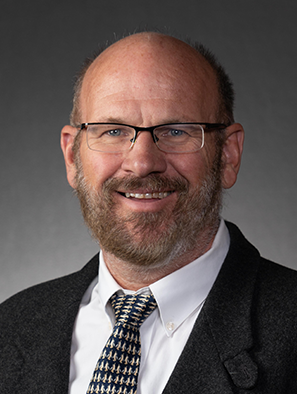
Paul Sutton
Professor
303-871-2399 (Office)
https://urizenapw02-vlp.du.edu/~paul.sutton/AAA_Sutton_WebPage/Sutton/index.html
Boettcher Center West, 2050 E. Iliff Ave. Denver, CO 80208
What I do
My research interests are in the general area of sustainability science, ecological economics, and population geography. Much of this research involves the use of nighttime satellite imagery for mapping and measuring population distribution, economic activity, anthropogenic impact on the environment, and urban sprawl. I am also interested in the mapping and valuation of ecosystem services. Future research activity will involve the development of spatially explicit maps of carrying capacity at various spatial scales and developing metrics of urban metabolism to establish baseline measures in the field of urbanization science.I serve on several international expert panels and working groups including the European Commission’s Human Planet Initiative , The economics of land degradation initiative, and the UN’s Global Environmental Outlook (GEO 6) . I also serve as an editor for several academic journals including Sustainability, Ecological Economics and Statistics, and Expresion Economica Revista. I currently live in the town of Morrison, Colorado and serve on the town's Board of Trustees. I also serve on the board of an NGO 'The Real Green New Deal' (https://www.realgnd.org/) and am active with another group called WEALL (The Wellbeing Economy Alliance (http://www.wellbeingeconomy.org/ ). My research related to WEALL and RGND is n the area of indicators such as the United Nations Sustainable Development Goals (SDGs). An increasing compontent of my research involves community engaged scholarship that tries to leverage my expertise in useful ways through listening and dialog with local communities to chart a path to a just, desirable, and sustainable future.
Specialization(s)
population geography, ecological economics, ecosystem services, sustainability science, urbanization science, remote sensing, geographic information science
Professional Biography
I discovered Geography through friends that were graduate students in Geography at UCSB in the early 1990s. I milked my time as a graduate student in the Geography Department at UCSB for as long as I could obtaining an M.A. in Geography in 1995, an M.A. in Statistics in 1997, and a PhD in Geography in 1999. My dissertation was titled: "Census from Heaven: Estimation of human population parameters using nighttime satellite imagery and GIS". I am deeply indebted to many faculty at UCSB for their guidance and their service to the discipline.
I took a position in the Geography Department at the University of Denver in the Fall of 1999 and have been here since then. I have many interests spanning much of geography but ranging into ecology, economics, and philosophy. Most of my research focuses on applied issues associated with the Human-Environment-Sustainability problematic. The tools needed to engage in this research are remote sensing , geographic information analysis, and statistics. I also am interested in the development of the discipline of ecological economics. I use my expertise in GIS and spatial data analysis in collaborations with economists and ecologists to make spatially explicit valuations of ecosystem services. My interests are quite broad and I have had students work in areas ranging from crime mapping, to explaining ‘high-stakes’ testing scores in the public schools, to mapping invasive species.
My fascination with apocalyptic movies has not faded though and I teach a first year seminar titled: Co-envisioning Utopia through the lens of a wellbeing economy. I do my small part to insure that 'Soylent Green' remains in the lexicon of the culturally literate. I also teach remote sensing, population geography, and ecological economics. I try to serve the discipline of Geography primarily by teaching and mentoring students in a way that prepares them to be informed and active citizens, provides them with unique and relevant skills that helps them pursue meaningful careers, and provokes and stimulates their curiosity and intellect in ways that insures that they appreciate that a geographic perspective is essential to a rich intellectual life.
Degree(s)
- Ph.D., Geography, UCSB, 1999
- MA, Applied Statistics, UCSB, 1997
- MA, Geography, UCSB, 1995
- BS, Chemistry, Union College, 1983
Licensure / Accreditations
- Climate Fresk Facilitator
- Faculty/Staff Investigators SBER - Non-Exempt
- Community Engagement
- Faculty/Staff Investigators SBER - Exempt
- ESRI Certificate in Python
- ESRI MOOC in Cartography
- Denver Citizen's Academy
- Licensed Permaculture Design Certificate
Professional Affiliations
- Association of American Geographers
- International Society of Ecological Economics
- American Association of University Professors
Research
Key Projects
- Gis Application Related to Air Quality Monitoring
Featured Publications
Performances
Presentations
Awards
- Mission to Planet Earth Fellowship, NASA
- Best Poster Award, World Geospatial Forum
- Jon I. Davidson President's Award, American Society for Photogrammetry and Remote Sensing
- Excellence in Research Award, Department of Geography UCSB


